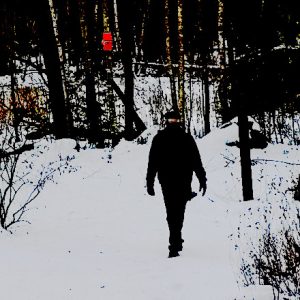 We are Vermonters now, my Gay Old Soulmate and I. We are not Vermonters like people who have lived here their entire lives. We hope to someday be Vermonters like those who moved here long ago. But already we are Vermonters in the sense that we want to be here and we have no other home.
We are Vermonters now, my Gay Old Soulmate and I. We are not Vermonters like people who have lived here their entire lives. We hope to someday be Vermonters like those who moved here long ago. But already we are Vermonters in the sense that we want to be here and we have no other home.
I left being a Kansan somewhere early in the queer revolution. I don’t know if I left Kansas or Kansas left me. At some point my body began to know it as a hostile state.
I return again and again to see family or visit old haunts. And yet I understand that my love for the wheat fields and creek-side stands of cottonwood can not overcome the social dislocation I feel there. Whenever my comfort level rises, Governor Sam Brownback or another Kansas politician proposes some law or policy to confirm my alienation. Perhaps that would feel different had I never left.
I never really became a Philadelphian. Over the course of thirty-two years, I found a strong community in my church there. I loved the people in my congregation and the people I worked with. But the city never soaked into me. When the Phillies won the World Series, I felt happy for the exuberant people surrounding me. I did not feel that we had won. Around the time of the recent Super Bowl, my new New England neighbors wondered where we stood, having moved into Patriots country from Eagles land. I realized that I didn’t really care.
When I was a boy—and even as a young man—any derogatory reference to Kansas would goad me to mount a fierce defense of my home state.
I have not belonged to any place like that since. I long to feel grounded—more than emotionally. I desire to feel connected to the earth beneath my feet again, as I did as a child. As a young man, my life plan envisioned me pastoring churches with their foundations in Kansas—or at least Great Plains—soil for the rest of my life. I never imagined my future to include the Green Mountains, sugar maples, or a small New England town on the banks of the Connecticut River.
Something here does feel familiar. I walk downtown and bump into the same person I met the day before. Introduced to someone new, I discover that they already know all about the misfortune of the moving van that got stuck trying to carry our belongings up the hill to the house my Gay Old Soulmate and I had purchased. I realize that anything I do will be known by my neighbors before I reach home—just as my parents, back in Goessel, Kansas, knew of my misbehavior on my way home from school, before I turned from Main onto Church Street. In Philadelphia, encountering someone who just knew someone I knew would prompt a surprised, “Small world!” Here, I expect it.
I suspect I am not the only queer person of my generation to find life’s trajectory dislocated me from my geographical roots. Queer-shaped experience did not fit a rural-shaped hole for many in my day. The question I have is whether and to what extent that dislocation can be reversed. Can the distrust I learned as a queer misfit from the Kansas prairie be unlearned in the wooded hills of Vermont thirty-five years later? Will I one day experience the moldy leaves beneath my feet the way I once felt home in the bluegrass? Will the soles of my feet understand Brattleboro’s sidewalks the way my childhood bare feet knew Goessel’s?
If queer living requires embodied living—as I know it does—then the answers to those questions must be “Yes!” As my Gay Old Soulmate and I embark on this great experiment in relocation, I intend to give my body to this place to know it as home. I am ready for the soles of my feet to understand the paths, neighborhoods, and wooded stretches of Brattleboro, Vermont, the way my childhood feet knew those of Goessel, Kansas.
